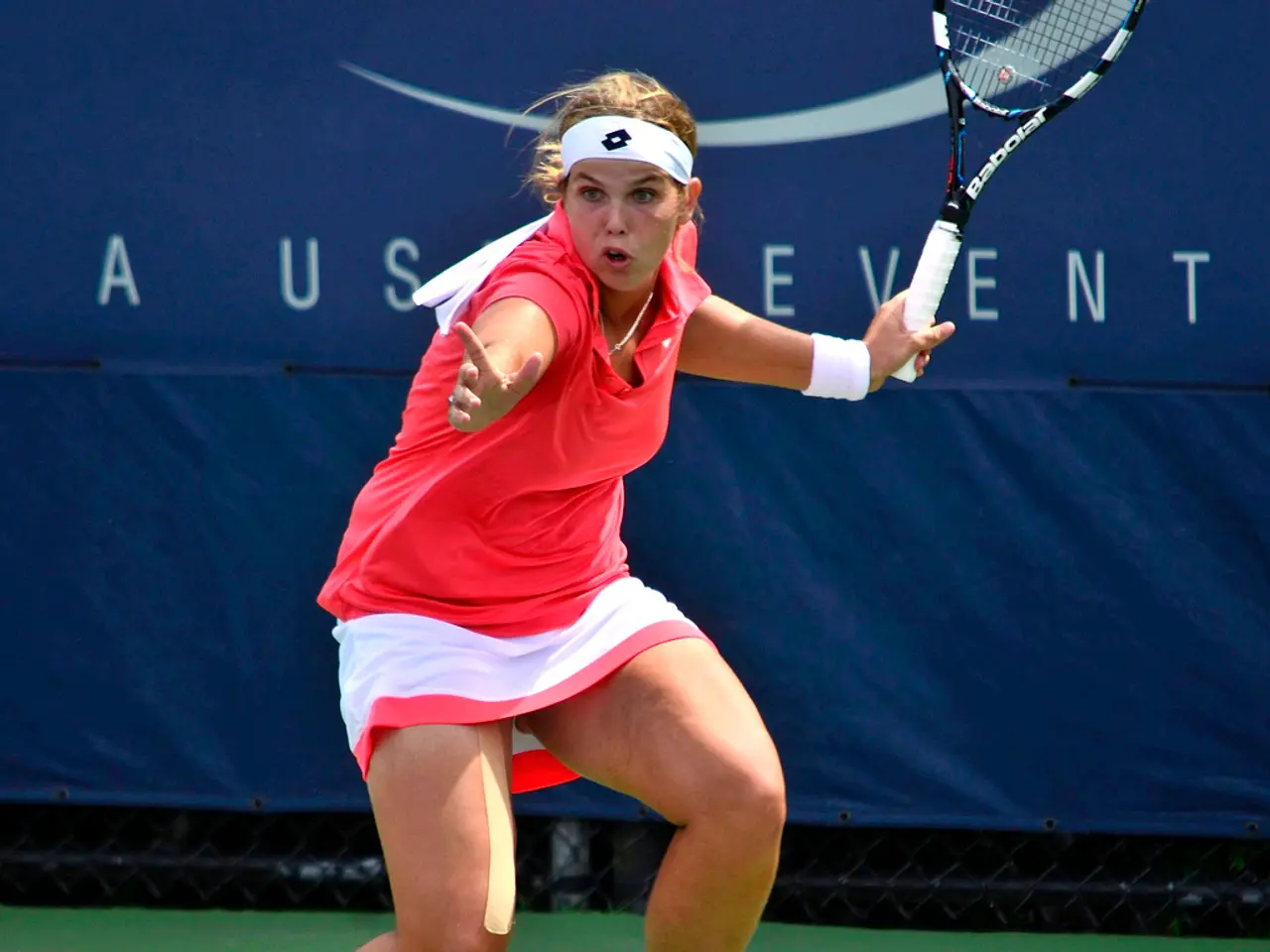Transgender darts star voices opinions following World Darts Federation's revised transgender policy adjustments
The World Darts Federation (WDF) has announced a new gender-eligibility policy that restricts transgender women from participating in female competitions. This policy change follows a vote at the WDF General Meeting in September, where the majority of members, consisting of national darts organizing bodies, voted in favour of limiting participation in women's and girls tournaments to those assigned female at birth.
The new policy prohibits trans women like Noa-Lynn van Leuven, a transgender darts champion who has won several women's titles, from participating in WDF's female tournaments. Van Leuven has spoken out against the policy, expressing her disappointment and frustration.
This move by the WDF is part of a broader trend in the sports world, with national and international organizations imposing bans or restrictions on transgender women's participation in female sports. The U.S. Olympic & Paralympic Committee (USOPC) is another sports organization that has adopted a policy barring transgender women from competing in women’s events.
The current global stance on transgender participation in female sports is highly contested and evolving. The issue reached a crescendo in February 2020 when President Donald Trump signed an executive order prohibiting transgender women and girls from competing in female sports. However, legal challenges are ongoing, with the U.S. Supreme Court set to hear cases challenging the constitutionality of state laws that exclude transgender girls and women from female sports teams.
Internationally, the matter is fragmented, with some sports governing bodies following the International Olympic Committee’s recommendations on hormonal and physiological criteria, while others enforce outright bans or restrictive eligibility rules. The USOPC’s new policy exemplifies a more exclusionary approach aligned with certain U.S. political directives, although it remains controversial and contested.
The WDF's statement does not mention any specific changes in the participation of trans men in sports or in the open category. All trans men and women are eligible to compete in the open category. Under the new policy, trans men are eligible to participate in female competitions as long as they are not undergoing hormone treatment.
The situation reflects an ongoing tension between inclusion, fairness, and legal interpretations of sex and gender in sports. As the debate continues, it is clear that the global stance on transgender participation in female sports is divided and in flux.
- The WDF policy-and-legislation restricting transgender women in female competitions echoes the U.S. Olympic & Paralympic Committee's policy, both being part of a broader politics-subset in sports, where numerous organizations have imposed bans or restrictions on transgender women's participation in female sports.
- The current general-news trend shows a fragmented international stance on transgender participation in female sports, with some bodies adhering to the International Olympic Committee’s recommendations, while others impose outright bans or follow more exclusionary approaches, such as the USOPC's new policy, which remains controversial and contested.






